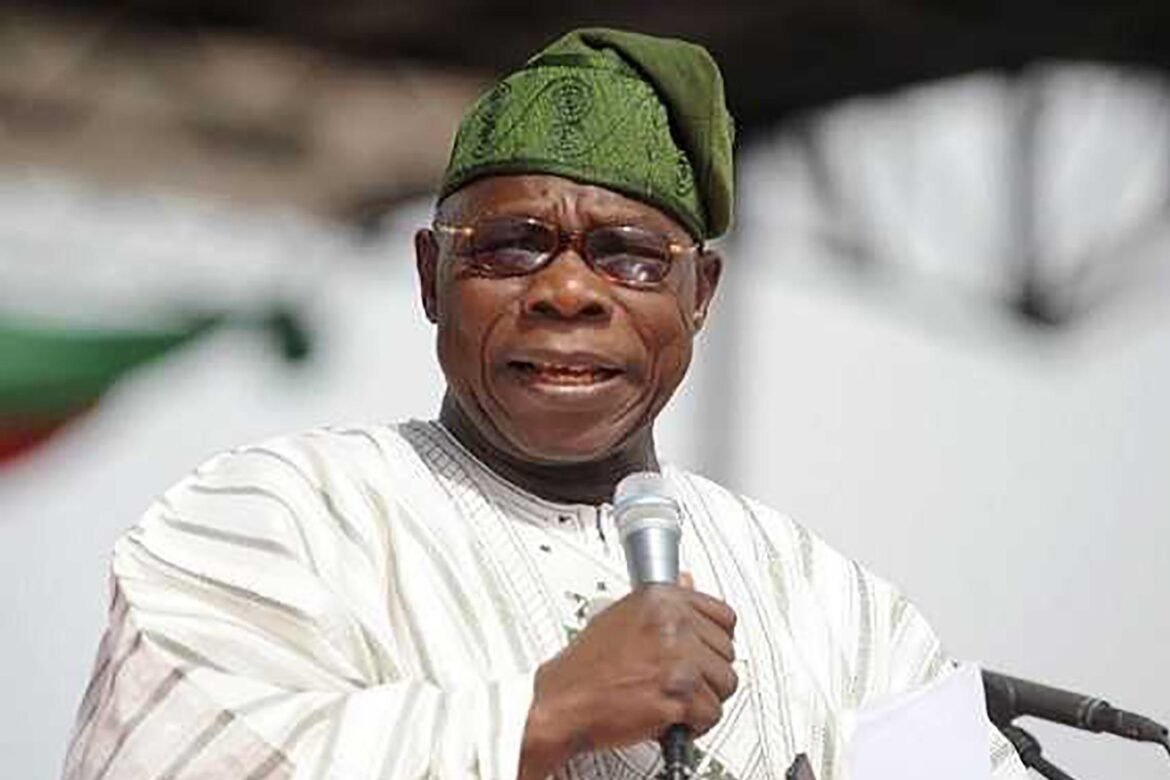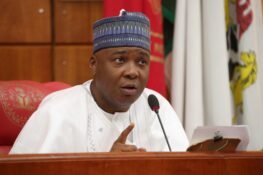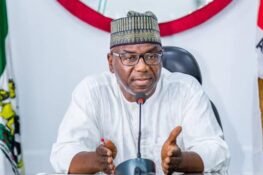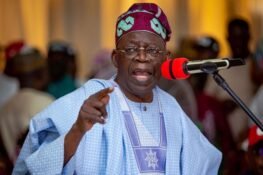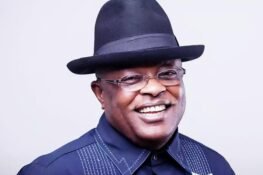At this rate, President Muhammadu Buhari may beat former military President General Ibrahim Babangida to the record of collecting the most abusive letters from a former president.
Olusegun Obasanjo’s letters to Babangida were unforgettable. He accused Babangida of every conceivable evil, among which foisting an economic programme on Nigerian that lacked a human face and turning the country into a useless experimental lab were lesser crimes.
Obasanjo supplemented his letters with scathingly lengthy interviews that would make his subsequent attacks on Umaru Yar’Adua and Goodluck Jonathan appear like mild admonitions.
Buhari is in for it. In a 16-page letter that makes the one of January 23, 2018 read like a preface, Obasanjo is not content with lashing out at what he describes as the incompetence, nepotism and narrow-mindedness of Buhari’s government.
He takes the attack to a whole new level by likening Buhari to General Sani Abacha, accusing him of working in cahoots with the electoral commission to rig the forthcoming elections, and also, taking direct aim at a few high profile people close to the President.
How can Obasanjo, in good conscience, accuse anyone of planning to rig an election when, in his days, he announced in advance that elections would be “do-or-die” and then went ahead to execute his threat with a single-minded ruthlessness that set a minimum standard for Robert Mugabe?
There are those who would argue that Buhari deserves what he got. And they would be right up to a point. Whatever his government believes it has achieved in the last four years, it has fallen vitally short in urgency, energy and presence. These were some of the shortcomings for which President Goodluck Jonathan was voted out.
But they hardly justify Obasanjo’s epistolary rascality. His current letter puts an end to any remaining hope that he would ever rise to the honesty and measured restraint expected of a statesman of his age and stature.
Obasanjo’s hypocrisy is unbelievable. How, for example, can he comment on election – any kind of election at all – when some of the worst elections held in this country in the last 20 years were conducted on his watch?
Obasanjo? It may be useful to remind him that the only election result that has not been fully released since 1999 was the presidential election of 2007, when the Chairman of the Independent National Electoral Commission at the time, Maurice Iwu, announced the winner (against the rule) even before the results of the election from the states had been fully collated and reported.
The immediate beneficiary of that fraud, former President Umaru Yar’Adua, was so ashamed of the outcome that he promised to review the process in his inaugural speech.
Yet, Obasanjo talks about rigging with the self-righteousness of a pope? The same Obasanjo believed to have forced INEC’s hand to publish the result of the 2007 election in Lagos on its website showing that Musiliu Obanikoro (then of the PDP) had won the governorship, even before the official results had been collated?
There are those who would argue that Buhari deserves what he got. And they would be right up to a point. Whatever his government believes it has achieved in the last four years, it has fallen vitally short in urgency, energy and presence.
How can Obasanjo, in good conscience, accuse anyone of planning to rig an election when, in his days, he announced in advance that elections would be “do-or-die” and then went ahead to execute his threat with a single-minded ruthlessness that set a minimum standard for Robert Mugabe?
Obasanjo’s foot soldiers in election rigging, mostly members of the PDP and APC, must be having a good laugh. They are still very much around and would remember the days at Eagle’s Square when it was “Obasanjo! Obasanjo!! Obasanjo!!!” all the way. They remember the time when irrespective of what happened at the polling booth, officials at the collation centres wrote results in favour of Obasanjo’s party, a party which in pursuit of its vow to rule for 60 years, had election results up to 2059 filed in its closet.
It’s also easy to accuse the National Assembly of indolence, greed and corruption today. The lawmakers, too, have received damning letters from Obasanjo. But how can we forget that the seed of this rotten harvest was nourished in the hubris of the Obasanjo years, especially his failed third term attempt?
A hostage to his ego, the man can neither bear the thought nor endure the sight of anyone who will not do his bidding, right or wrong.
It was in Obasanjo’s bid to supplant the constitution and install himself in office for a third term that he tried to wrap the National Assembly around his small finger. When lobbying failed, Obasanjo’s foot soldiers deployed billions of naira in bribes in sacs some of which were later paraded before the cameras.
And when lobbying, bribery and blackmail failed, Obasanjo foisted one of the most callous and self-serving presidential primaries and transition programmes on his party and the country. Yet, today, this same man is preaching prudence and respect for process!
Perhaps if Obasanjo had not infected the National Assembly with his poor habits the institution might have been on a stronger footing today, less prone to waywardness and more clear-sighted in working with the executive branch to serve the people.
That lawmakers put their stomach first, second and third in much of what they have done in the last four years, even with an APC-majority legislature, is a measure of how badly the cancer from the Obasanjo years has spread and undermined the system.
But it’s amazing what hindsight can do. With its full benefit and advantage, the former president can afford to ask INEC Commissioner, Amina Zakari, to step down because of unsubstantiated claims of blood ties to Buhari. Yet, one of the worst heists of the Obasanjo presidency was how he used Ndi Okereke-Onyiuke’s Corporate Nigeria to raise N2billion for his re-election in 2003, and then went on to use his position not just to purchase a private university, but also to squeeze private businessmen for at least N8.5billion to build a Presidential Library.
Obasanjo’s hypocrisy is unbelievable. How, for example, can he comment on election – any kind of election at all – when some of the worst elections held in this country in the last 20 years were conducted on his watch?
But amnesia is even better than hindsight, not just for the comfort and convenience it confers, but particularly because it helps us to remember only that which we wish to remember.
So, we can conveniently forget the salacious and dysfunctional details of the Obasanjo brood; his servility when he was in dire straits and needed to purchase political favours from Atiku Abubakar and Moummar Ghaddaffi; we must forget those, and instead, accept Obasanjo’s advice on how to save a weak and encircled Buhari from himself.
As for the spectre of Abacha-style tyranny and the breach of the rule of law mentioned in Obasanjo’s letter, it would be interesting to hear what former governors Ayo Fayose, Joshua Dariye, the families of late Diepreye Alamieyeseigha and the people of Lagos have to say about Obasanjo the man, as opposed to Obasanjo the saint and new leader of the Salvation Army.
Whatever sainthood his exit from office may have conferred on him, Obasanjo’s sordid record on human rights – and I’m not even going to mention Odi, Zaki Biam and the Ita Oko years – hardly recommends him as a latter-day apostle of habeas corpus.
He can hold Abacha up as perhaps the worst Nigerian leader in recent memory, yet unlike him, Abacha was not a hypocrite. With him you knew where you stood, a virtue that even Obasanjo-for-lifers would be hard pressed to find in the former president.
What motivates him: Patriotism, egotism, narcissism, exceptionalism, or just what? In his current article entitled, “Akande: The last of Awo’s cavalrymen,” one of Nigeria’s clearest-thinking columnists, Louis Odion, describes Obasanjo as “an eternal narcissist”, one who “rarely acknowledges good in any human being other than himself.”
That instinct was in play in August 2005 when Obasanjo got a call from the US, that the FBI had, as part of an investigation into suspicious transfers by Atiku, found $90,000 stashed in the fridge of William Jefferson, a US congressman and collaborator of the then former vice president.
Insiders said Obasanjo danced as he took the call at the prospect of the smoking gun that would finally nail the coffin of Atiku, his adversary at that time. Obasanjo, being Obasanjo, he couldn’t wait to rejoice at his deputy’s misery.
Whatever sainthood his exit from office may have conferred on him, Obasanjo’s sordid record on human rights – and I’m not even going to mention Odi, Zaki Biam and the Ita Oko years – hardly recommends him as a latter-day apostle of habeas corpus.
There’s yet another story that sheds light on the Obasanjo conundrum. I can’t remember which January day it was, but my visit to the Hill Top Manson in Oke Mosan, Abeokuta, wasn’t long after Rev. Fr. Ejike Mbaka gave his famous prophecy at the Adoration Ground in Enugu.
In December 2014, LEADERSHIP had, quite unexpectedly, announced Obasanjo as the Person of the Year and I was asked to deliver the news to him with a letter formally inviting him to the Award ceremonies in May 2015.
As my friend and I entered the sitting room where Obasanjo and a guest were playing Ayo, he asked with the curiosity and excitement of a child who had either just cornered a foe or won an elusive prize: “Have you watched the video? Have you seen it? The Mbaka video, have you seen it?,” he asked, laughing and making funny facial gestures, even before we could take our seats.
The former president was jubilant. Mbaka had prophesied in his New Year message that the time was up for former Jonathan and the video of that prophecy, which had gone viral, was the answer to Obasanjo’s scathing letters and fulfillment of his pledge to frustrate Jonathan’s second term effort.
Mbaka’s prophecy had thrown petrol into the fire of anti-Jonathan sentiments and Obasanjo obviously couldn’t wait to see the former president consumed in his misery.
And after it happened, and Buhari assumed office, Obasanjo was one of the most regular visitors to Aso Rock, not just to re-assure himself that Jonathan was politically dead, but also to savor his funeral in multiple photo ops.
A hostage to his ego, the man can neither bear the thought nor endure the sight of anyone who will not do his bidding, right or wrong. What a life!
